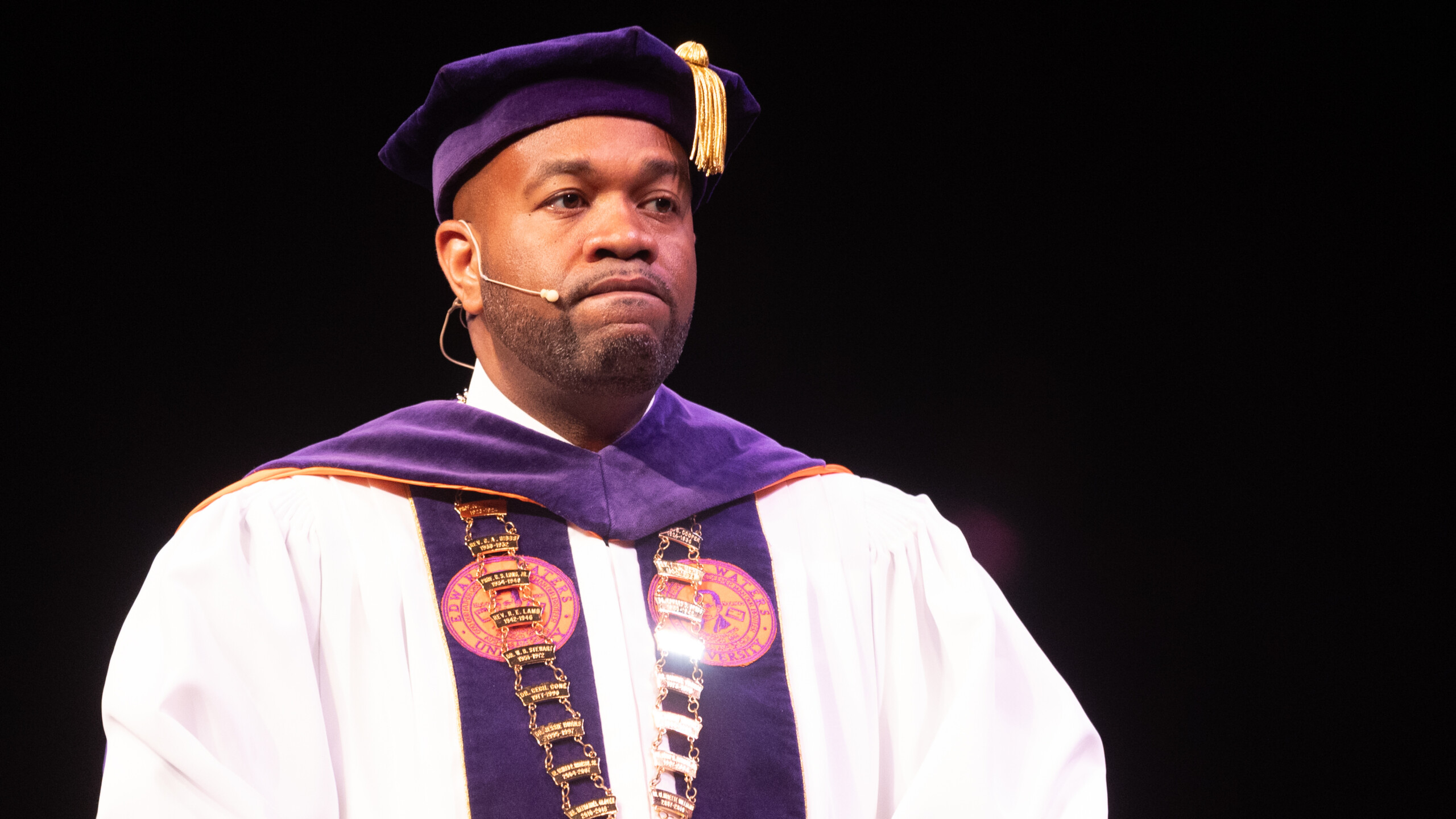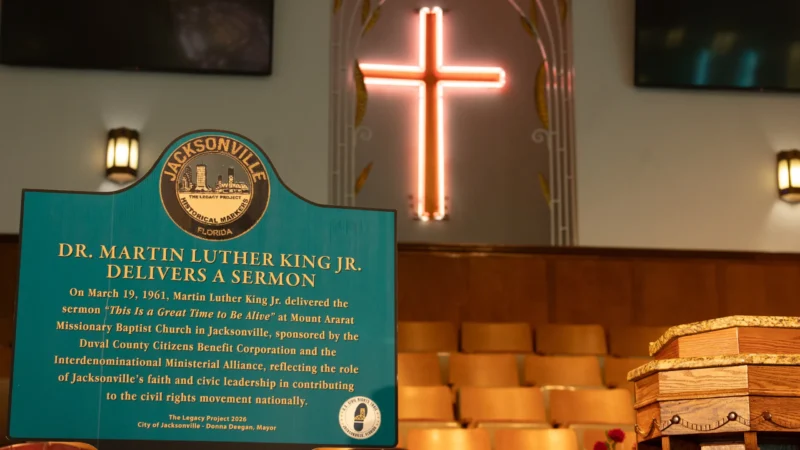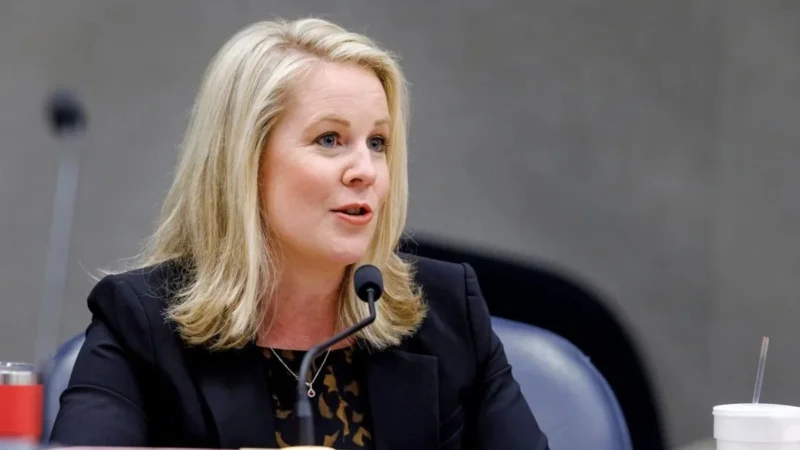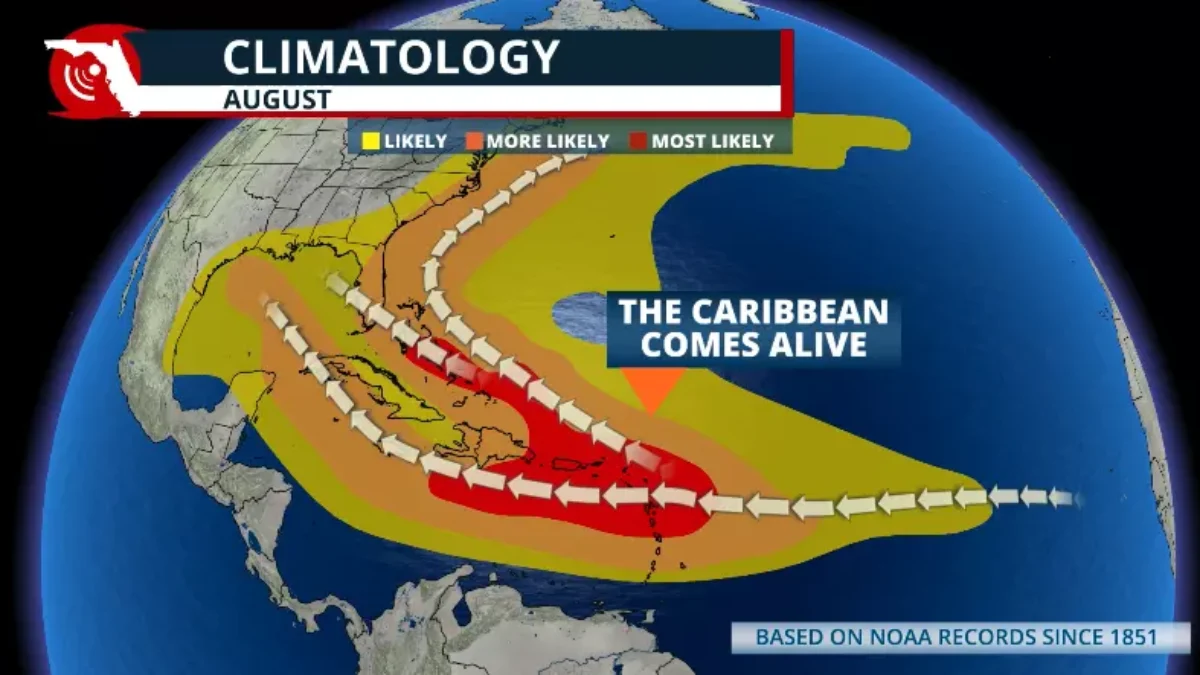A. Zachary Faison will begin his eighth year as the president and CEO at Edward Waters University when classes resume Monday.
The 45-year-old is self-described geriatric millennial who has helped the 159-year-old institution become a university, enhance its reputation among applicants and expand its alumni base through bigger graduating classes. Those initiatives were part of Edward Waters’ Emerging Eminence strategic plan that will conclude later this year.
Despite being younger than his peers at Florida’s four historically Black universities, Faison is the dean of the quartet.
Faison spoke with Jacksonville Today last month as he and the university prepare for the 2025-26 academic year. It’s a year where the university expects to identify its next aspirations and release a new strategic plan.
Q: Congratulations on your contract extension (until 2032). Why did you want to extend your contract and stay at Florida’s oldest private institution, until at least the start of the next decade?
A: We like to say, it’s Florida’s first independent institution of higher learning and first historically Black university. But, to your question, my work is not done.
I love to use sports analogies and athletics analogies. One of my favorite players, as I got to be in college and in my younger adulthood, was Kobe Bryant. There was a famous interview he gave during [the 2009 NBA Finals].
They had just won the game and it was a really thrilling victory. He got to the media and the reporter said, “You don’t seem all that happy about this huge win that you had.” He quipped, kind of curtly, and said, “What do I have to be happy about? The job’s not [finished].”
For me, it’s the job’s not done.
I’m excited for where we’ve been, what we’ve been able to accomplish. Why did I want to remain? The job’s not done. We have so much more for us to accomplish as a university.
(Writer’s note: The Lakers beat the Orlando Magic 101-96 in overtime of Game 2 of the 2009 NBA Finals in the game that preceded Bryant’s ‘job’s not finished’ quip. Bryant scored 29 points and added eight assists in the win. The Lakers won the series in five games to clinch Bryant’s fourth NBA championship.)
Q: What would constitute the job being finished in the Kobe circumstance?
A: We’ve just come through our 10-year reaffirmation of accreditation process this year. We’ll learn the outcome of that in December of this year. I want to be here to be around for what the results of that process will yield for the university.
Beyond that, there is an opportunity for us to chart our pathway in terms of a new strategic plan at the university. What that will portend remains to be seen as we have conversations and dialogue over the next year with all of our university stakeholders — certainly our students, our faculty, our staff, alumni, board of trustees, community members. I’m excited to see what that might yield in where we see Edward Waters University in the next five to 10 years.
We have made tremendous strides in terms of our infrastructural improvement and growth. One of the byproducts of being the first independent institution of higher learning is that we have some facilities that are seasoned.
We want to continue to bring all of our facilities and all of the different spaces that we have — instructional spaces, activity spaces — into increased modernity. That’s not done.
Our academic profile. We’ve done a lot. We’ve gone from college to university. We’ve gone from eight degree programs when we arrived in 2018 to doubling that. The job’s not done. We believe there is more that’s there in terms of how we expand our academic degree offerings for our students here currently, and the students to come.
We want to make sure we are on the cutting edge when you talk about the proliferation of AI around the country. As you talk about the emerging trends that we’re seeing in the marketplace, we believe that there’s still much left there for Edward Waters in terms of its growth and development.
Athletically, there is a whole lot. … We transitioned to the NCAA, but we’ve got championships to win. We’ve got more facilities there that we need to augment and grow. I’ve got a track program that I need a track for. I’ve got a softball program (to fund). There’s so much more work left to do across the institution.
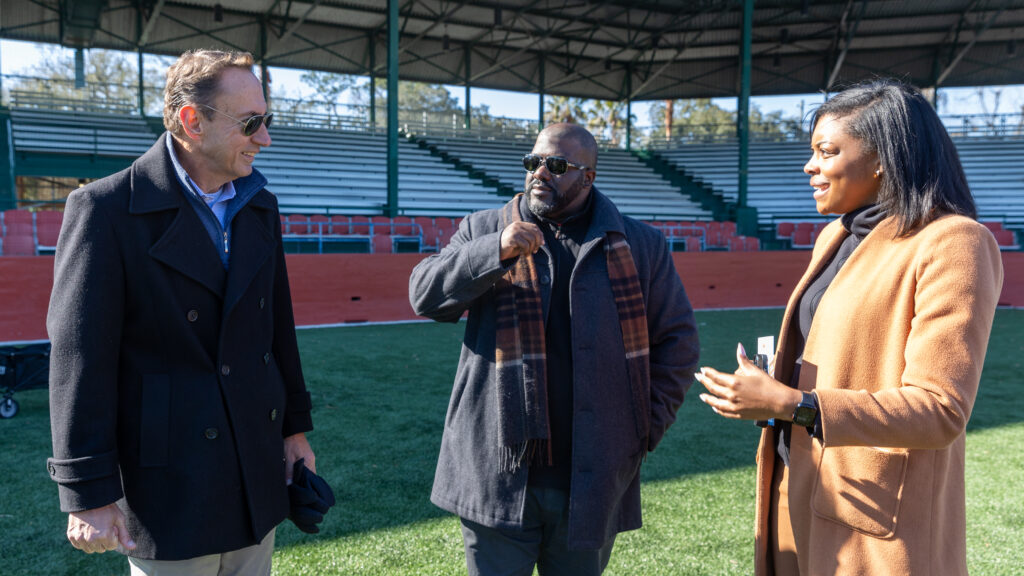
Q: This summer, Edward Waters was featured in Black Enterprise because of the growth of the incoming freshman class. First, what does it mean to the university to be able to be acknowledged and published in Black Enterprise? And, how do you believe that will have Edward Waters on the cusp of thought leaders, business leaders and the folks who read Black Enterprise?
A: We thought it was awesome for Black Enterprise to feature Edward Waters and to chronicle the tremendous growth in interest the university is garnering. It speaks to our expanding profile, not just here in the state of Florida, but nationally. … I think it does speak to the fact that more folks are paying attention and noticing the work that we are doing here at Edward Waters.
We don’t want to rest on our laurels — because the job’s not done. We have not arrived. But, it’s certainly a good feeling to know that others are recognizing the tremendous work that our staff, faculty and administration (have done) to raise the profile of the university.
Q: I wanted to slide into some meat and potatoes things. Pell Grants. So many students at HBCUs are Pell Grant recipients. From a policy perspective, the One Big Beautiful Bill that the president signed (on July 4) really changed how Pell Grants are going to be awarded. Do you expect that to have any type of impact on the incoming freshman class, or future classes?
A: The Big Beautiful Bill, as you mentioned from a Pell Grant perspective, doesn’t take effect until Jully 1, 2026. So, there will not be any kind of impact on students for this upcoming year.
We won’t feel any impact, if any, with regard to that until next year’s class. This year’s students and incoming students will not be impacted by that.
While the recent changes to the Pell Grants program in the Big Beautiful Bill are, understandably, raising some concerns across a whole lot of sectors in higher education, I think its particularly amongst the community colleges and institutions that have a high concentration of part-time and/or nontraditional students.
I’m confident that at Edward Waters, it will have minimal to no adverse impact on our enrollment or tuition revenue as a result of the legislation. We don’t serve an extraordinarily high population of nontraditional students.
Most of our students are full-time students and are traditional students. … The reason I’m putting those two things together is because, typically, your nontraditional students, or your adult learners, are the ones that are coming and taking part-time classes.
The Pell legislation, the impact of that is the new legislative requirement that students have to take 15 credits per semester to receive the full Pell (Grant) award. Well, at Edward Waters, we have an initiative called “15 to Finish.” We already strongly encourage our students to take 15 semester hours so they can graduate in four years.
(Writer’s note: Faison says the 15 to Finish initiative was created in 2019. The U.S. Department of Education has previously defined a full-time student as someone who takes at least 12 credit hours in a semester. In the fall 2024 semester, 98.2% of Edward Waters students took at least 12 credit hours.)
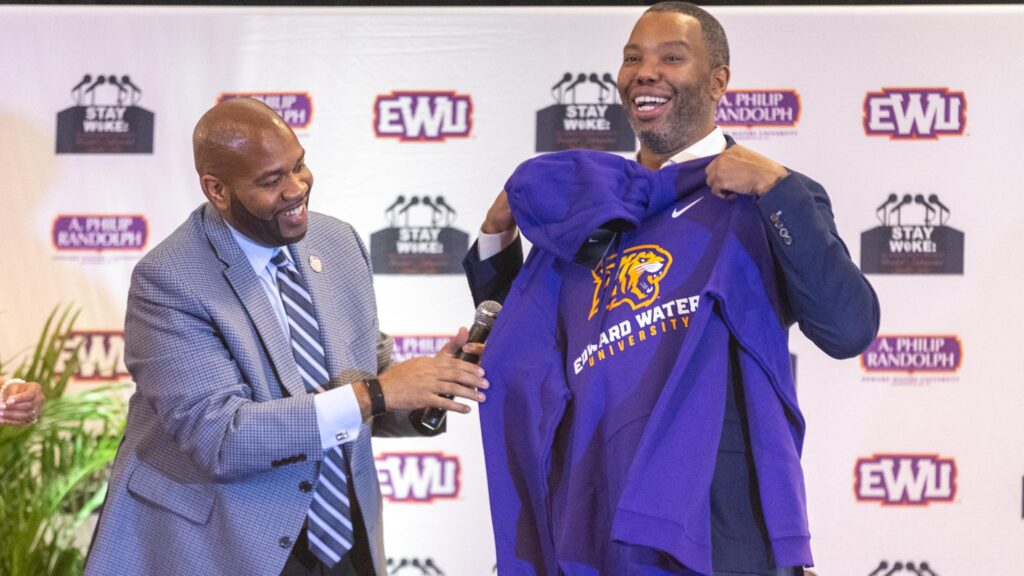
Q: What would you say is the role of the Black college in 2025?
A: I think we have to lean into who we are. We can’t be shy. We have to be unabashed about our historicity. But, also, that has to be coupled with a very intentional demonstration of our contemporary relevance.
I think many times, folks from outside of the HBCU space look at us as historic relics instead of institutions that are contemporaneously relevant in terms of what we produce and how we are impacting, positively, this country in terms of the quality of the graduates we produce, the scholarship our faculty produces and how we are at the forefront of so much as it relates to the African American community.
I always say: If we did not have HBCUs, you would have to create them in 2025. You do not have the Black middle or professional class without HBCUs. We know that almost 90% of all (Black) Ph.D.s come from historically Black colleges and universities. Teachers, doctors, lawyers, engineers, these are professions that overwhelmingly (are educated at HBCUs).
I think we have to really sound the clarion call and ensure that stakeholders and folks around the country know — not that we are relics, and our historicity is important — but we are making a present contribution that’s indispensable to the advancement of this country.
Q: To dial it down even more, you are the president of a HBCU in Jacksonville. Jacksonville is a community where — to your point about the Black middle and upper class — if there are Black professionals, they were educated in some way, in some capacity, at a historically Black university. That university is often Edward Waters, (Florida A&M) and Bethune-(Cookman) here in Jacksonville. But, there is literally a Howard University (Alumni Club of Greater Jacksonville).
How important is it to Jacksonville and the Jacksonville economy that HBCUs — whether Edward Waters or its sister institutions in or out of the state — are able to continue to produce students, alumni and scholarship?
A: If you want to talk specifically about Jacksonville, this past year, at Edward Waters, we produced our largest graduating class in a quarter century.
These are African Americans that hold MBAs, (master’s of public administration), master’s degrees in cybersecurity and undergraduate degrees in programs like public health, business and accounting.
The overwhelming proportion of which live and work here in Jacksonville. Now, the city has the opportunity to benefit from that kind of expertise.
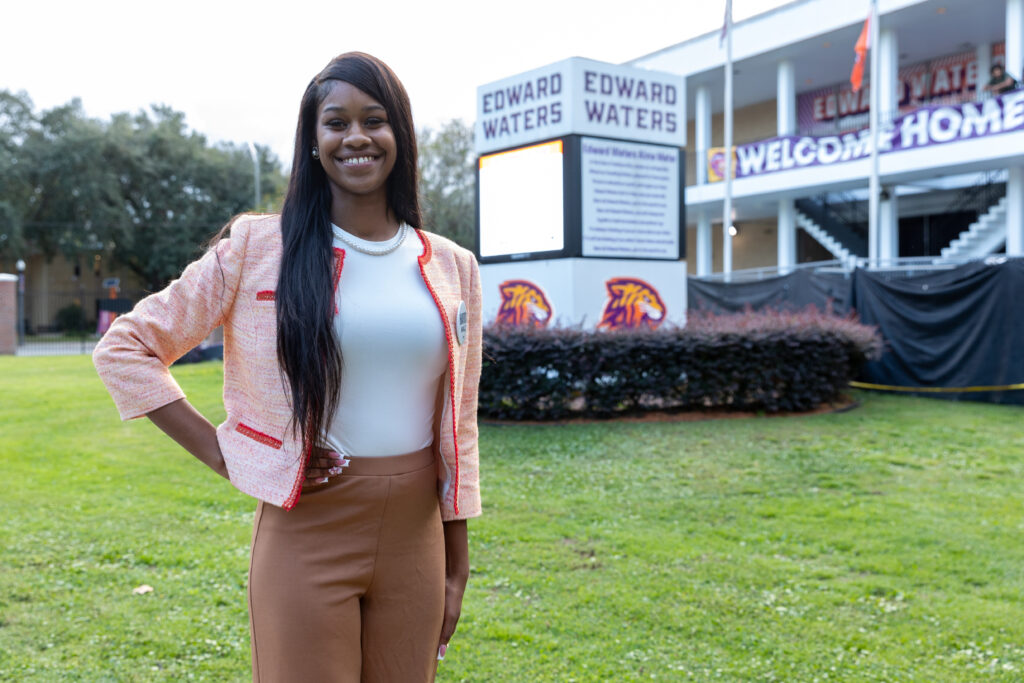
Q: A number of the public universities in the state of Florida have, essentially, deputized their police forces to work in conjunction with Immigration and Customs Enforcement. Has ICE approached you, or the security firm the university works with, in terms of working with them?
A: Not to my knowledge. We haven’t been approached by ICE with regard to any kind of action that they have asked us to take.
We would work in compliance with any law enforcement agency that might make a request to us. As I am aware, we have not had any engagement, direct or otherwise, from ICE.
Q: What excites you? What is the thing, are the things, that most excite you, give you a jolt of energy heading into this academic year?
A: Students! Although we do have summer school, a lot of our classes during the summer are online. So you don’t have the same level of activity and you don’t see the same energy on the campus during the summer because the students aren’t here.
I’m looking forward to meeting our new students. I’m looking forward to seeing a lot of our returning students.
Having that opportunity to see and engage our students, hear the pads of the football team practicing, to hear the band practicing, all of that. It signals to us, as presidents and those who work in the higher education space, that it’s fall. It’s that time again for the start of a new academic year.
This Q&A has been edited and condensed for clarity.



